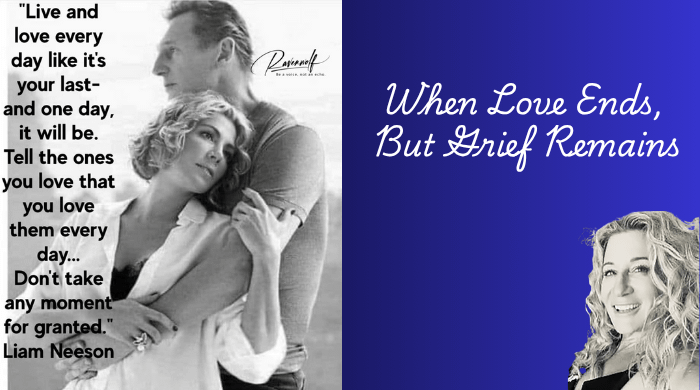Community News Day with Lake Norman Citizen
- News Friday & Lake Norman Citizen

Grief is a language of love—one that doesn’t always wait for death to speak. We most often associate grief with the passing of someone dear, the funeral flowers, the casseroles, and the quiet that follows when everyone else goes home. But there’s another kind of grief that walks among us, quieter but just as heavy—the grief of losing someone who’s still very much alive.
When a relationship ends, especially with your favorite person—the one you built a life, routine, or future around—the loss can mirror death in ways that surprise even the strongest of us. You grieve the laughter that no longer fills your days, the morning texts that no longer come, and the shared plans that now feel like empty rooms in your heart. The world keeps spinning, but you stand still in the debris of what once was.
Death teaches us finality. But relational grief teases us with “what if.” What if they call? What if it was just bad timing? What if love could fix it? In death, there’s no returning. In heartbreak, there’s a haunting possibility that keeps us circling the same emotional block, waiting for a door that may never open again. Both forms of grief force us to face a new version of life—one we didn’t choose.
People often minimize breakup grief. They’ll say, “At least they’re still alive,” or “You’ll find someone new.” But anyone who has loved deeply knows the heart doesn’t measure loss by death certificates. It measures by connection, by the weight of shared memories, by the absence that echoes louder than words. When love ends, a piece of our identity goes with it—the part built around being someone’s person.
In the Widow’s Den, I’ve seen this overlap countless times. A widow mourning her late husband’s passing, and another woman mourning the end of a long marriage, both sitting side by side, hearts cracked open in different ways but speaking the same language of loss. The tears sound the same. The questions are the same. “Who am I now?” “What do I do with all this love?”
Healing, in both cases, begins with acceptance—not of what happened, but of what is. You cannot rewrite the ending, but you can begin a new chapter. You learn that love, even when lost, leaves a residue that can still nourish your soul. You carry the lessons, the laughter, and the grace forward. You rebuild your rhythm—one small act of courage, one deep breath, one sunrise at a time.
Whether grief comes from a death or a departure, it is a mirror reflecting the depth of your capacity to love. And that, in itself, is sacred. You are not broken because you grieve; you are human because you loved. The goal is not to stop missing them—it’s to learn to live fully again, carrying both the memory and the meaning of what once was.
So, if your heart is aching—whether from the silence of the grave or the silence of goodbye—remember this: love never truly dies. It transforms. It teaches. It prepares us for a new kind of peace, the kind we find when we realize that the person we must learn to love next is ourselves.

Monica Lucia is the Author of The Final Chapter and a passionate advocate for those navigating grief and loss. She is the Founder of Widow’s Den and Sisterhood of LKN, dedicated to supporting families. In addition to her writing and community-building work, Monica is the Grief and Bereavement Counselor and End-of-Life Doula at EveryStory Partners, Charlotte, NC. widowwarriorwon@gmail.com


